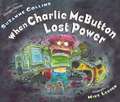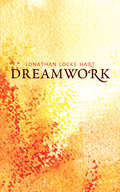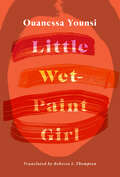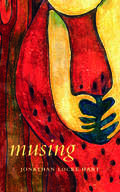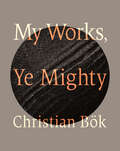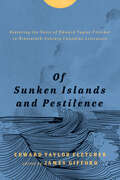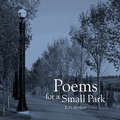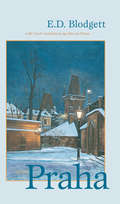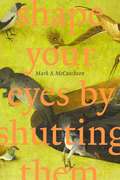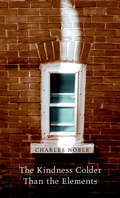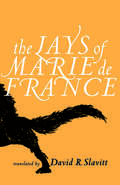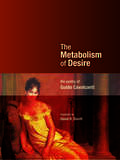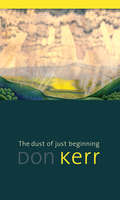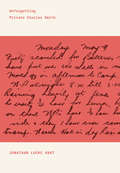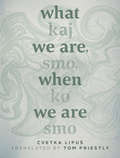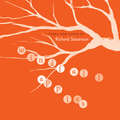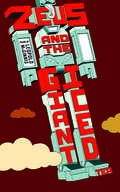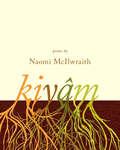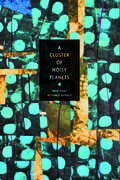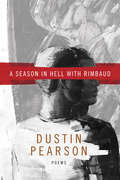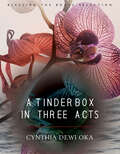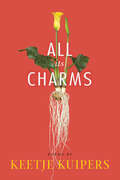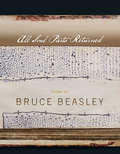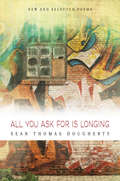- Table View
- List View
When Charlie McButton Lost Power
by Suzanne Collins Mike LesterAn electifying picture book from the author of The Hunger Games. Charlie McButton likes computer games so much, he never plays with anything else. When a thunderstorm knocks out the electricity, his tech empire comes tumbling down, and his whole world loses power. He needs batteries--FAST. But the only triple A's he can find are in his little sister's talking doll. Will he resort to desperate measures and cause his little sister to have a meltdown of her own? Or will be snap out of his computer craze long enough to realize he can have fun with her, even without batteries? Suzanne Collins, author of the bestselling Hunger Games trilogy, and award-winning illustrator Mike Lester team up for a hilarious and timely tale that will crack up young computer addicts and those who love them.
Dreamwork
by Jonathan Locke HartDreamwork is a poetic exploration of the then and there, here and now, of landscapes and inscapes over time. It is part of a poetry series on dream and its relation to actuality. The poems explore past, present, and future in different places from Canada through New Jersey, New York and New England to England and Europe, part of the speaker's journey. A typology of home and displacement, of natural beauty and industrial scars unfolds in the movement of the book.
From Turtle Island to Gaza (Mingling Voices)
by David GroulxWith a sure voice, Groulx, an Anishnaabe writer, artistically weaves together the experiences of Indigenous peoples in settler Canada with those of the people of Palestine, revealing a shared understanding of colonial pasts and presents.
Little Wet-Paint Girl (Mingling Voices)
by Ouanessa YounsiBorn to a French-Canadian mother and Algerian father, Ouanessa Younsi is a bold and unique voice in modern Francophone poetry. In this intensely personal recitation on identity and ethnicity, Younsi takes the reader on a surreal odyssey through a liminal world of belonging and unbelonging, absence and presence, mind and body. Her visionary work, first published in French and translated here by Rebecca Thompson, is unsettling, riveting and guaranteed to leave readers contemplating the existential mysteries of “self.”
Musing
by Jonathan Locke HartMusing is a book of sonnets. Working within the framework of a classic poetic form, Jonathan Locke Hart embarks on an extended meditation on our rootedness in landscape and in the past. As sonnets, the poems are a mixture of tradition and innovation. Throughout, Hart deftly interweaves European culture with North American settings and experience. The collection opens with a foreword by noted literary scholar Gordon Teskey, who reflects on the themes that have marked the evolution of Hart's poetry. Of Musing, Teskey writes: "These deeply thoughtful poems bring layered historical consciousness into the sonnet. They also touch and stir the heart through all its levels."
My Works, Ye Mighty
by Christian BökMy Works, Ye Mighty expands upon the conceptual literature of Christian Bök, particularly his ongoing project, entitled The Xenotext. Based upon work conducted during his tenure as the Writer-in-Residence at Athabasca University, this essay addresses the concept of "scale" in poetry, meditating on this topic with an abundance of imagery; moreover, his essay appears, alongside an epic poem, especially written by him for this publication.
Of Sunken Islands and Pestilence: Restoring the Voice of Edward Taylor Fletcher to Nineteenth-Century Canadian Literature
by Edward Taylor FletcherEdward Taylor Fletcher was born in England in 1817 and arrived in Canada as a young boy. An important figure in Canadian literature, Fletcher’s writing was almost entirely forgotten by history. In this volume, James Gifford has gathered and annotated Fletcher’s essays and poems, writings that describe a nineteenth-century Canadian cultural life far more cosmopolitan than what we might have imagined. Fletcher was a voracious reader of works in many languages and although he was oriented toward Britain, his writing notably reflects a gaze fixed on a horizon much further away. His work therefore stands in contrast to the tendency of later Canadian writers, who focus inward on the nation, and on issues of Canadian identity. His work as a surveyor allowed him to travel across the country, observing the Canadian landscape which appears interwoven with different literary traditions in his metrically complex poetry. By recuperating Fletcher’s works, Gifford expands our view of nineteenth-century Canadian literature and establishes Fletcher as a remarkable literary figure worthy of attention.
Poems for a Small Park
by E. D. BlodgettIn this collection by the well-known Edmonton poet, E.D. Blodgett, is an ode to the wisdom and divinity of silence. The poet muses on the quiet of the outdoors and the mysterious relationship that exists between spaces of silence within a city's limits. Most of the short lyrics that make up this sublime collection were written first in English and French before being translated into Cree, Michif, Chinese, and Ukrainian to reflect Edmonton's multicultural past and present. Together they form a composite view of the people and culture that inhabit the city's natural spaces.
Praha
by E. D. Blodgett Marzia Paton Robert KessnerPrompted by renowned poet E.D. Blodgett's deep love for and intimate experience of Prague, Praha is a poetic homage to the legendary city's vital spirit. As they build on one another, the poems in the collection lift the reader over the threshold of purely mythic understanding and into the heart of one of Europe's loveliest and most venerable cities. Each poem is accompanied by a translation into Czech, encouraging even those who do not know the language to immerse themselves in its sound. Superbly complemented by the mysteriously eloquent paintings of Czech artist Robert Kessner, Praha offers the moods of Prague in its many seasons and in all its magic.
Shape Your Eyes by Shutting Them (ISSN)
by Mark A. McCutcheonIn this inventive collection of poems, McCutcheon engages in sophisticated literary play and deploys the Surrealist practices of juxtaposition, cut-up, and defamiliarization. Moving from eroticism to the macabre and from transformative quotation to the individual idiom, Shape Your Eyes by Shutting Them explores intertextuality in poetry by challenging the cultural tradition of seeing quotation as derivative.
The Kindness Colder Than the Elements
by Charles NobleWith wit and cunning, Noble's poems insinuate themselves into the mediations of "we use language" / "language uses us," into the objectification of "mind," into the struggles and cracking of systems. Cuing on Hegel's epochal revitalization of the syllogism, they begin with sentences-cum-arguments that issue from an everyman's intentions and insights, playing into and baiting the "sociality of reason." In the cut-up sentences then come the restless, accelerated themes—themes that exist only in their variations, ghosting into one another like the dusk and the dawn in a winging, distended now.
The Lays of Marie de France
by David R. SlavittThe twelve “lays” of Marie de France, the earliest known French woman poet, are here presented in sprightly English verse by poet and translator David R. Slavitt. Traditional Breton folktales were the raw material for Marie de France’s series of lively but profound considerations of love, life, death, fidelity and betrayal, and luck and fate. They offer acute observations about the choices that women make, startling in the late twelfth century and challenging even today. Combining a woman’s wisdom with an impressive technical bravura, the lays are a minor treasure of European culture.
The Metabolism of Desire: The Poetry of Guido Cavalcanti
by Guido Cavalcanti David R SlavittThe fact that Cavlacanti’s friend, Dante Alighieri, was a supremely fine poet ought not blind us to Cavalcanti’s own, rather different excellence. Both men were attracted to the dolce stil nuovo, the “sweet new style” that emerged in thirteenth-century Florence. While Dante’s poetry was devoted to his childhood sweetheart, Beatrice, Cavalcanti’s poetry had more the tang of real-world experience: he struggled against unruly passions and sought instead to overcome love – a source of torment and despair. It is chiefly through the translations of Rossetti and Pound that English-speaking readers have encountered Cavalcanti’s work. Pound’s famous translation, now viewed by some as antiquated, is remarkably different from the translation provided here in the graceful voice of poet David Slavitt. Working under the significant restraints of Cavalcanti’s elaborate formal structures, Slavitt renders an English translation faithful to the original poetry in both rhyme and rhythm.
The dust of just beginning
by Don KerrDon Kerr knows prairie culture better than most?he knows it from the inside out. He has made us aware of ourselves through his numerous volumes of poetry, his fiction, his many plays, his histories, and his interest in heritage. In this mature, accomplished collection, we can once again admire his unique prairie voice?minimalist, self-effacing, direct yet subtle and nuanced, immersed in his love of the vernacular language of this place. His line is muscular, his timing impeccable, his broad strokes with so few words exemplary.
Unforgetting Private Charles Smith
by Jonathan Locke HartPrivate Charles Smith had been dead for close to a century when Jonathan Hart discovered the soldier’s small diary in the Baldwin Collection at the Toronto Public Library. The diary’s first entry was marked 28 June 1915. After some research, Hart discovered that Charles Smith was an Anglo-Canadian, born in Kent, and that this diary was almost all that remained of this forgotten man, who like so many soldiers from ordinary families had lost his life in the First World War. In reading the diary, Hart discovered a voice full of life, and the presence of a rhythm, a cadence that urged him to bring forth the poetry in Smith’s words. Unforgetting Private Charles Smith is the poetic setting of the words in Smith’s diary, work undertaken by Hart with the intention of remembering Smith’s life rather than commemorating his death.
What We Are When We Are: Kaj smo, ko sm (Mingling Voices)
by Tom Priestly Cvetka LipušWorking within a postmodern style, this rhythmic and melodious collection of poems originally written in Slovenian by Cvetka Lipuš and translated here by Tom Priestly, blends the real with the surreal, dull urban lives with dreams. Lipuš, known for the lexical beauty of her work, dwells on topics of time and space which she handles in an almost revolving, irreverent manner. Priestly captures the maze-like characteristic of her verse and carefully reconstructs the sonoric beauty of the work in its original language.
Windfall Apples: Tanka and Kyoka
by Richard StevensonThe venerable tanka and her upstart cousin kyoka mingle with Kerouac’s American pop haiku in five-liner imagist poems and linked sequences. In Windfall Apples, Richard Stevenson mixes east and west with backyard barbecue and rueful reflection.
Zeus and the Giant Iced Tea
by Leopold McginnisCrafting wings out of wax and poems from the underground, Zeus and the Giant Iced Tea is a dreamlike voyage through poetic narrative format, blurring the line between poetry and fiction. Exploring the frenetic lives of Mexican cowboys, robots, sultans, Greek gods, and convenience store clerks, Zeus and the Giant Iced Tea shatters preconceived notions of poetry and instead offers a more accessible strain of literary free flow.
kiyam
by Naomi McilwraithThrough poems that move between the two languages, McIlwraith explores the beauty of the intersection between nêhiyawêwin, the Plains Cree language, and English, âkayâsîmowin. Written to honour her father’s facility in nêhiyawêwin and her mother’s beauty and generosity as an inheritor of Cree, Ojibwe, Scottish, and English, kiyâm articulates a powerful yearning for family, history, peace, and love.
A Cluster of Noisy Planets
by Charles RaffertyCharles Rafferty’s latest collection of prose poems turns philosophical. In A Cluster of Noisy Planets, Rafferty captures the rhythms and patterns of life as a lover, father, and poet, distilling each moment to its essence and grounding them collectively in the wider perspective of a changing world, the constant turning of the stars and the changing seasons of the New England countryside. With a knowing nod to the passage of time—day to day, year to year, epoch to epoch—these lyrical poems form a record of the profound, ephemeral joys, losses, and echoes of commonplace moments.
A Season in Hell with Rimbaud (American Poets Continuum Series #193)
by Dustin Kyle PearsonIn pursuit of his brother, a man traverses the fantastical and grotesque landscape of Hell, pondering their now fractured relationship. The poems in Dustin Pearson’s A Season in Hell with Rimbaud form an allegorical travelogue that chronicles two brothers’ mutual descent into hell. When the older brother runs off by himself, the younger brother begins roaming Hell’s different landscapes in search of him. As he searches, the younger brother ruminates on their now fractured relationship: what brought them here? Can they find each other? Will their bonds ever be repaired? In the tradition of Virgil, Dante, Milton, Swift, Shelley, Joyce, Sarte, and especially Arthur Rimbaud, Pearson leads his speakers on a speculative, epistolary journey through the nether realm inspired by Christian beliefs and tradition. Drawing on the works of French Symbolists and the literary traditions of the American South, A Season in Hell with Rimbaud guides readers through an intimate rendering of one brother’s journey to find his lost and estranged brother, perhaps recovering a part of himself in the process.
A Tinderbox in Three Acts (American Poets Continuum Series #195)
by Cynthia Dewi OkaSelected by Aracelis Girmay, A Tinderbox in Three Acts is at once elegy and exegesis, fact and invention. In her fourth poetry collection, Cynthia Dewi Oka performs a lyric accounting of the anti-Communist genocide of 1965, which, led by the Indonesian military and with American assistance, erased and devastated millions of lives in Indonesia. Under the New Order dictatorship that ruled by terror for over three decades in the aftermath, perpetrators of the killings were celebrated as national heroes while survivors were systemically silenced. Drawing on US state documents that were only declassified in recent years, Oka gives form and voice to the ghosts that continue to haunt subsequent generations despite decades of state-produced amnesia and disinformation.In service of recovering what must not be remembered, A Tinderbox in Three Acts repurposes the sanitized lexicon of official discourse, imagines an emotional syntax for the unthinkable, and employs synesthetic modes of perception to convey that which exceeds language. Here, the boundary between singular and collective consciousness is blurred. Here, history as an artifact of the powerful is trumped by the halting memory of the people whom power sought to destroy. Where memory fails, here is poetry to honor the dishonored, the betrayed, the lost and still-awaited.
All Its Charms (American Poets Continuum #171)
by Keetje KuipersA luminous new collection from Keetje Kuipers, All Its Charms is a fearless and transformative reckoning of identity. By turns tender and raw, these poems chronicle Kuipers’ decision to become a single mother by choice, her marriage to the woman she first fell in love with more than a decade before giving birth to her daughter, and her family’s struggle to bring another child into their lives. All Its Charms is about much more than the reinvention of the American family—it’s about transformation, desire, and who we can become when we move past who we thought we would be.
All Soul Parts Returned (American Poets Continuum)
by Bruce BeasleyWhen the Gnostic Gospels collide with new age spiritualism, the Oxford Happiness Test, and treatises on Buddhist practice, we know we're in the territory of a Bruce Beasley collection. Alternately devout and heretical, Beasley-known for his intense and continuing soul-quest through previous award-winning books-interrogates the absurdities, psychic violence, and spiritual condition of twenty-first century America with despair, philosophic intelligence, and piercing humor.Bruce Beasley is the author of eight collections of poetry, including Theophobia (BOA, 2012). The winner of numerous literary awards and fellowships, he lives in Bellingham, WA, where he is a professor of English at Western Washington University.
All You Ask For is Longing: New and Selected Poems (American Poets Continuum)
by Sean Thomas DoughertyFor over twenty years Sean Thomas Dougherty has negotiated between modernist and avant-garde writing and more populist traditions that extend back to Walt Whitman. His subject matter ranges from basketball to Bjork, from blue collar workers to Biggie Smalls, from Luciano Pavarotti to women waiting at a diner outside a prison in Upstate New York. Selecting from the best of eight previous collections, this New and Selected reveals the powerful arc and development of Dougherty's writing and establishes him as a voice of dissent for the future.A former Fulbright fellow, Sean Thomas Dougherty works at Gold Crown Billiards in Erie, Pennsylvania.
